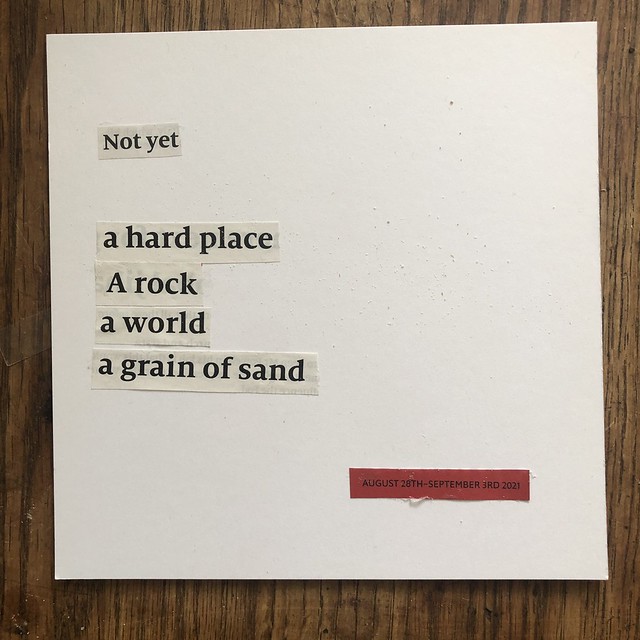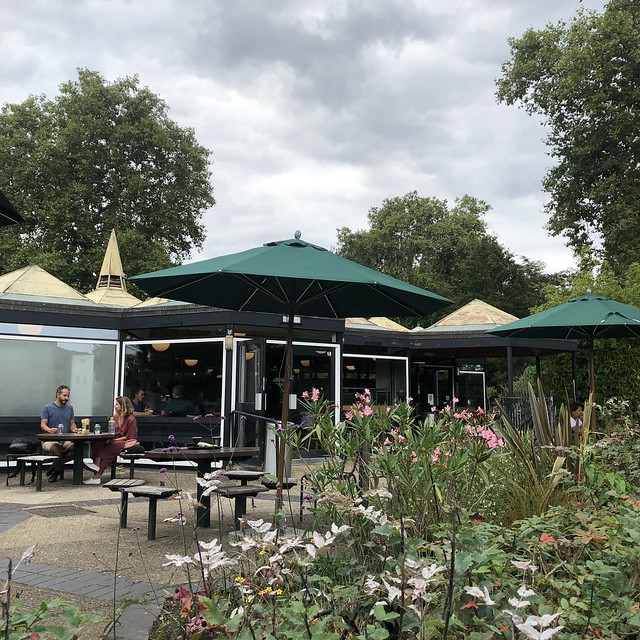After listening to the podcast I've just read Electrify by Saul Griffiths. I found it very persuasive. These are the bits I've highlighted and they're worth reading.
But if you can't be bothered with it Cory Doctorow has written a very good summary. So we're going to start with the highlights of that.
Doctorow:
"Griffith starts with some very good news: the US’s energy budget has been wildly overstated. About half of the energy that the US consumes is actually the energy we need to dig, process, transport, store and use fossil fuels. Renewables have these costs, too, but nothing near the costs of using fossil fuels. An all-electric nation is about twice as efficient as a fossil fuel nation. That means that the problem of electrifying America is only half as hard as we’ve been told it was.
There’s more good news! Your car, stove, water heater, furnace and air conditioner are all super-inefficient, too. When you have electrified your life, everything you do will be cheaper, faster and better. A just energy transition isn’t a transition to ecology austerity — you can have better, cheaper versions of the stuff you love.
Getting all this done will require a lot of money. Electrification is front-loaded: you spend a lot of money now to save a lot more money (oh, and the planet) later. That means that retrofitting our homes, replacing our appliances, and changing over our utilities will require large upfront investments.
For Griffith, the roadmap is pretty straightforward. From now on, every time we replace a vehicle or renovate a building or swap an appliance, we should be buying electric. Every new roof should include solar panels. New housing should be energy efficient and shouldn’t even have a gas hookup. All of this should be financed with low-cost, long-term loans comparable to the government-backed mortgages that created the post-war middle-class (but without the racism that created Black housing precarity and poverty).
No more fossil-fuel plants should be built, period. Existing extraction and refining programs should halt, now. Existing plants should be decomissioned and replaced with renewables and batteries. This should be federally funded, as should the new jobs for fossil-fuel-sector workers, whose labor the electrification project can handily absorb, with room to spare for every un- and under-employed person in America.
The stuff we’ve been told is impossible with renewables — like maintaining base-load — is revealed as a largely solved problem (big batteries, which will get smaller and cheaper over time).
Some of Griffith’s solutions raised my eyebrows, particularly his plan to simply buy off the fossil fuel sector, giving them a fractional return on their stranded assets (book value minus the expected expenditures to dig them up and process them, discounted by some kind of penalty percentage). This is basically the solution that Kim Stanley Robinson proposes in his brilliant Ministry For the Future. I hate it. But Griffith makes a good case for it, a kind of “would you rather be happy, or right?” conundrum. If you want to argue with him about it, I suggest you read the book first."
And now back to Griffiths. This first bit is rather long, but it's also rather inspiring. Transformation not efficiency!
"The United States is stuck in a way of thinking about the environment that dates back to the 1970s. This mindset can be succinctly summarized as (pardon my Australian), “If we try extremely hard, and make many sacrifices, the future will be a little less fucked than it might be otherwise.” To address climate change, we need a new narrative that is both more honest about the task at hand and more broadly engaging than a story about sacrifice. It can be a story about what we stand to win—a cleaner electrified future, with comfortable homes and zippy cars—which is better than nightmares about what we have to lose. We have a path to decarbonization that will require changes, to be sure, but not deprivation. The 2020s mindset says, “If we build the right infrastructure, right away, the future will be awesome!” The language of sacrifice associated with being “green” is a legacy of 1970s thinking, which was focused on efficiency and conservation. The 1970s began with Earth Day (April 22, 1970), and was a decade defined by two energy crises over oil imports. The air1 and water quality2 problems caused by our energy production were coming to the fore, in part because of groundbreaking books like Rachel Carson’s Silent Spring and the burgeoning environmentalist movement they inspired. The answer to these problems became a story about conservation: use less fossil fuel, turn down the thermostat, buy smaller cars, and drive less. This is the era that gave us the mantra “Reduce! Reuse! Recycle!” This approach translated to more fuel-efficient (but still petroleum-burning) cars and better-insulated homes (but still heated with natural gas). The emphasis on efficiency ever since the ’70s is reasonable, since almost no one can defend outright waste, and almost everyone agrees that recycling, double-glazed windows, more aerodynamic cars, more insulation in our walls, and industrial efficiency will make things better. But while efficiency measures have slowed the growth rate of our energy consumption, they haven’t changed the composition. We need zero-carbon emissions, and, as I often say, you can’t “efficiency” your way to zero. The ’70s emphasis on efficiency was also confusing, in that it conflated different types of efficiency. You can make a big car more efficient with a more efficient engine, or you can buy a smaller car that is more efficient because of its smallness, or you can use your car less. The first of these efficiencies is thermodynamic efficiency; the other two come from behavior changes. Environmentalists have focused more on behavior-change efficiencies—which are fine, as far as they go—but we will gain a lot more with big technological changes. Rather than make a more efficient fossil fuel-powered car (thermodynamic efficiency), or drive it less (behavior efficiency), it makes more sense to make an electric car powered by renewable energy. 2020s thinking is not about efficiency; it’s about transformation."
"When we add up all of those savings, we find we only need ~42% of the primary energy we use today. Well, that is pretty remarkable. America can reduce its energy use by more than half by introducing no efficiency measures other than electrification. No thermostats were turned down, no vehicles were downsized, no homes were shrunk."
"Environmentally concerned citizens today pay a lot of attention to small daily purchasing decisions and make complicated moral calculations about grocery bags, synthetic meat, vacation flights, and plastic packaging. Of course, every little bit counts, but this thinking, as we’ve seen, is mired in the efficiency framework of the 1970s (Reduce! Re-use! Recycle!). These purchasing decisions make a little difference but aren’t ambitious enough to solve our larger carbon problem."
This list seems useful.
"Here are the main purchasing decisions climate-conscious people should worry about:
- Your personal transportation infrastructure: Everyone’s next car, and every subsequent car, should be electric. (Of course, public transit, bicycles, electric bicycles, electric scooters, or anything that isn’t powered by fossil fuels are even better options.)
- Your personal electrical infrastructure: Everyone should install solar on their roofs at the next opportunity, whether that be a retrofit, replacing shingles, or when buying or building a new house. You should be installing enough solar to power your electric vehicles and electrified heating systems, not just the small solar systems of today that only accommodate your existing electrical load.
- Your personal comfort infrastructure (HVAC): Replace furnaces and gas- or oil-fired heating systems with electric heat pumps. Additionally, it is wise to insulate and seal homes. If you are replacing your flooring, it is a perfect time to install radiant hydronic heating systems. Choose efficient air conditioning, and buy systems that allow you to heat and cool only the rooms you are in, instead of the whole building.
- Infrastructure in your kitchen, laundry and basement: Choose the most efficient and electric refrigerators, dryers, stove-tops, ranges, water heaters, and dish and clothes washers that are available.
- Your personal storage infrastructure: As the country becomes increasingly electrified, there will come a moment when a small home battery will make economic sense to install as a backstop to personal energy demands (and this will also make the grid more robust). We don’t need to argue; in the spirit of “yes, and,” there will also be grid-connected batteries. The point is that there is enough storage required that everyone needs to participate. Cost will be the ultimate decider, and I’m going to bet we’ll do more storage closer to the end use, because then transmission and distribution costs will be cheaper.
- Your community infrastructure: Support clean-energy infrastructure in your community and state, so that all of your personal infrastructure is connected to carbon-free electricity sources. Advocate for solar cells over your school and church’s parking lots.
- Your personal dietary infrastructure: It is not as obvious to think about your dietary choices when discussing infrastructure, but the decision to eat less meat, or become vegetarian or even vegan, is one with a very high impact on your energy and climate emissions. While strict vegetarianism is not necessary, a decision to shape your diet in line with a hot, crowded planet has positive impacts for you and the environment."
Ah!
"The energy used to make an object is amortized over its lifetime. This is why single-use plastics are a terrible idea. It is also why the easiest way to make something “greener” is to make it last longer."
This is useful perspective on carbon sequestration.
"All of the planet’s trees and grasses and other biological machines pull a grand total of about 2 GT of carbon a year. To put that in context, our fossil burning is emitting 40 GT a year. Imagining that we can build machines that work 20 times better than all of biology is a fantasy created by the fossil-fuel industry so they can keep on burning."
"When considering carbon sequestration, we should first remind you just how staggering that 40 GT of CO2 is. If you had a giant set of scales and put all the things humans make or move on one side, and all of the CO2 we produce on the other, the CO2 would weigh more."
"The challenge of air capture is like a treasure hunt looking for CO2 needles in the atmospheric haystack. You have to look at 2,500 molecules before you find 1 CO2 molecule. For context, it is far easier to find Waldo, who in his various books appears at concentrations of around 1,200 to 4,500 PPM (or more accurately WPP, Waldos Per People)"
"Yes, and . . . What about Zero-Energy Buildings? Building standards for extremely efficient homes that need no net-energy input, such as the energy-efficient German “passivhaus,” are a good idea. Exactly what constitutes “no net-energy input” is up for debate because of the complexities of tracing material and energy flows. Some will argue that with a sufficiently good passivhaus you do not need heat-pump heating; that may be true, but we have to solve this problem for the houses that are already built as well as the houses we build tomorrow—in the US only 1% of our housing stock is built new each year. These houses, no matter how they are built, will be rare birds. Remember, too, that only about 2% of houses are built by an architect; the majority are built from common plans by a contractor. I think of passivhaus and other similar architectural plans as a wonderful library of very good ideas for building efficient houses, and even some retrofits, and we all, especially architects and builders, should embrace these ideas and create even more. What would perhaps have more impact in this area are the cultural shifts that make living in smaller, simpler houses more desirable. Mobile homes have gotten a bad cultural rap, but they have a smaller carbon footprint than conventional houses and could offer one of the fastest pathways for adopting modern decarbonized domestic infrastructure."
"Flying is energy-intensive per minute, but not per mile. Per passenger-mile traveled, it requires approximately the same energy as driving in a car with a passenger. That said, reducing the number of flights taken is one of the most effective ways for individuals to reduce their energy footprints."
"If you are not old enough to vote, you should vote with your feet by protesting. The youth climate strike is a fabulous place to start. You might also consider various ways to file lawsuits against the adults and industries that are stealing your future. Get angry and get creative, but remember to have fun and forge great friendships along the way. Chain yourself to a fence. Fall in love with the passionate activist beside you. If you are a consumer, don’t focus so much on your small decisions. While it may be helpful to buy shampoo in bulk to eliminate the plastic or buy all-natural clothes that can be composted, what matters most are your big purchasing decisions. Your next car must be electric. You need to do everything you can to make your house run on solar power. If you are about to buy a house, consider a smaller one or a mobile home. Whatever you invest in turning your house into a big battery that can give back to the grid will have more impact on climate change than any other purchasing decision you make."
"If you are a tech worker, stop making social media and delivery apps and start making software that helps people use less energy and that balances the grid, automates the design of solar and wind plants, makes public transit work better, and does other useful things to accelerate America’s transition to renewables."
I think this might be the framework I need to think about my own carbon reduction efforts. We've done some of these things but not others. I'm also interested to find out what the UK data is for some of these things. So I might do some digging into that.


